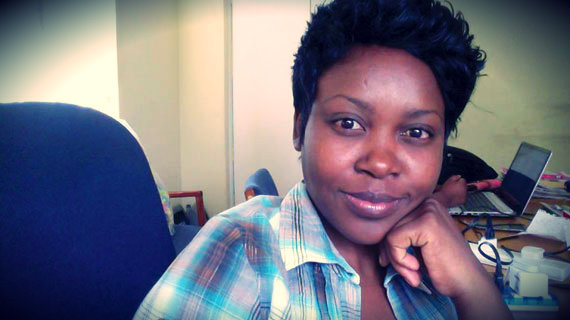
ONE of the things I have resented about being born after independence is being excluded from certain national conversations because I don’t have a frame of reference to engage with whatever is being discussed.
Delta Milayo Ndou
For some reason, discussions around contemporary problems tend to use the liberation struggle as a premise and those of us who weren’t there during the struggle get excluded because our ignorance of those events acts as a barrier to our participation.
One scholar says that for a younger generation to engage in conversations about a distant past, “it means they have to learn about it, they cannot remember it so they have to memorise it”.
I pondered over this last week as President Robert Mugabe gave one speech after another at the National Heroes’ Acre in which he took strolls down memory lane and spoke of how heroic each of the men being interred had been – I wondered how much of it was authentic.
My misgivings were concretised when I read an article by Zimbabwe Independent editor Dumisani Muleya that while addressing at Nkala’s burial, “Mugabe’s narrative was deliberately incomplete — selective amnesia had set in”.
I wondered what had been left out and what other important events of the past have since been swept under the carpet. Had all those things really happened? Was it really true and who could refute any of it?
One of the things I interrogated in my master of arts degree thesis was the idea of how the collective memory of young Zimbabweans has been framed. I contended that through the public media, we have been taught what to remember about the past and how to remember it.
- Chamisa under fire over US$120K donation
- Mavhunga puts DeMbare into Chibuku quarterfinals
- Pension funds bet on Cabora Bassa oilfields
- Councils defy govt fire tender directive
Keep Reading
Where are the people who remember differently? Where are the people who were there when it happened and who can refute what the public media has constantly churned out, what the history books have claimed and what Zanu PF has insisted on propagating? What really happened? Is it true that Zanu PF single-handedly liberated the country as they have claimed non-stop?
Without a lived experience of what happened in the liberation struggle, those of my generation have been effectively elbowed out of national discourse. The dominant narrative of Zimbabwe’s history is undoubtedly biased because it has largely been a narrative dominated and almost exclusively owned by Zanu PF — yet there are hardly any counter-narratives.
I remember reading that “the power of collective memory does not lie in its accurate, systematic or sophisticated mapping of the past, but in establishing basic images that articulate and reinforce a particular ideological stance” as has been the case with Zimbabwe’s history as told by Zanu PF.
In a survey I conducted last year, in which 113 participants who were born after independence responded to questions on whether or not the past still mattered or whether history remain relevant to contemporary Zimbabwe, the responses were mainly disheartening because so many young people simply didn’t care anymore about history.
They are afraid that caring about history would make them seem like they support Zanu PF. Really? When did we become a country where a political party can become synonymous with our whole liberation history? Where are the other voices that could tell the other side of our national story?
It appears to have become fashionable to show contempt for our history as a people just to make the point that one does not support Zanu PF and it seems as if the more you loathe the liberation struggle history, the more legitimate you become as a progressive party supporter.
Well, I care deeply about history. I care about the past and I care about those excluded narratives, about the stories that we have not been afforded the chance to hear and the unsung heroes that are never mentioned in Zanu PF’s revised version of the past.
I’m hoping that before the entire generation that fought in the liberation struggle (or that witnessed it) dies out, someone, somewhere will begin to help us remember the past differently.
It has been said that without memory we become less than ourselves and it matters what our real historical narrative is all about rather than having one party using history to obtain political legitimacy.
Blessing-Miles Tendi noted that in the case of Zimbabwe’s institutionalised history, those who were opposed to this biased telling of history “ultimately failed to articulate for the Zimbabwean public an alternative to patriotic history” and because of this failure, we are in danger of remembering a bunch of lies.
As the post-independence generation, we may recognise the various techniques used by Zanu PF for the subjective transmission of memory, including selective omission, fabrication, exaggeration and embellishment, implication of causal linkages, blaming the enemy or extraneous circumstances and reframing contextual factors, but we do not possess the wealth of knowledge or lived experience necessary to give a rebuttal.
We don’t remember, but there are those who do and in their silence, they doom us as an entire generation to remember a historical lie about the country’s past. But that’s just me. I could be wrong. We can always agree to disagree.
Delta Milayo Ndou is a journalist, writer, activist and blogger










